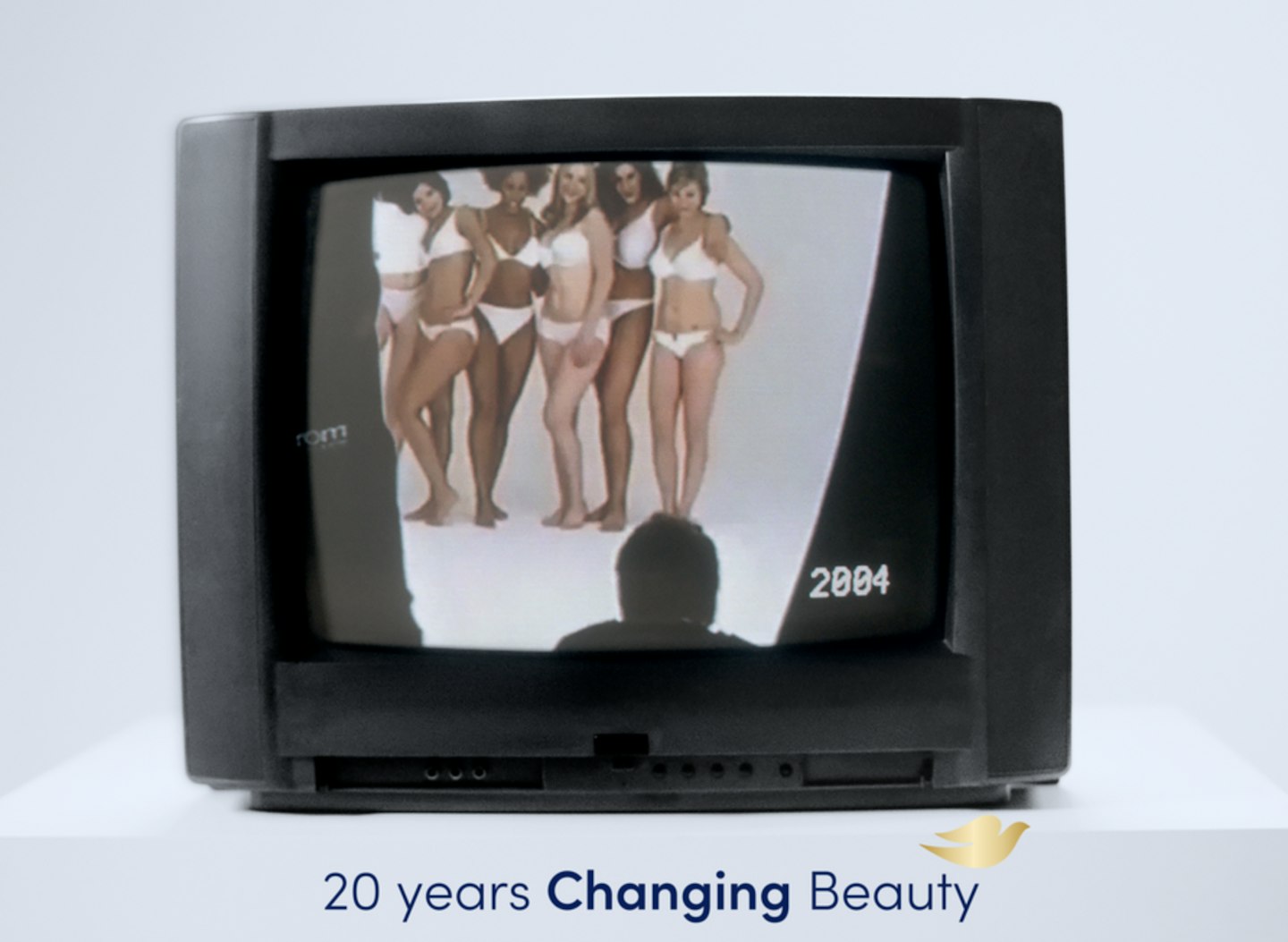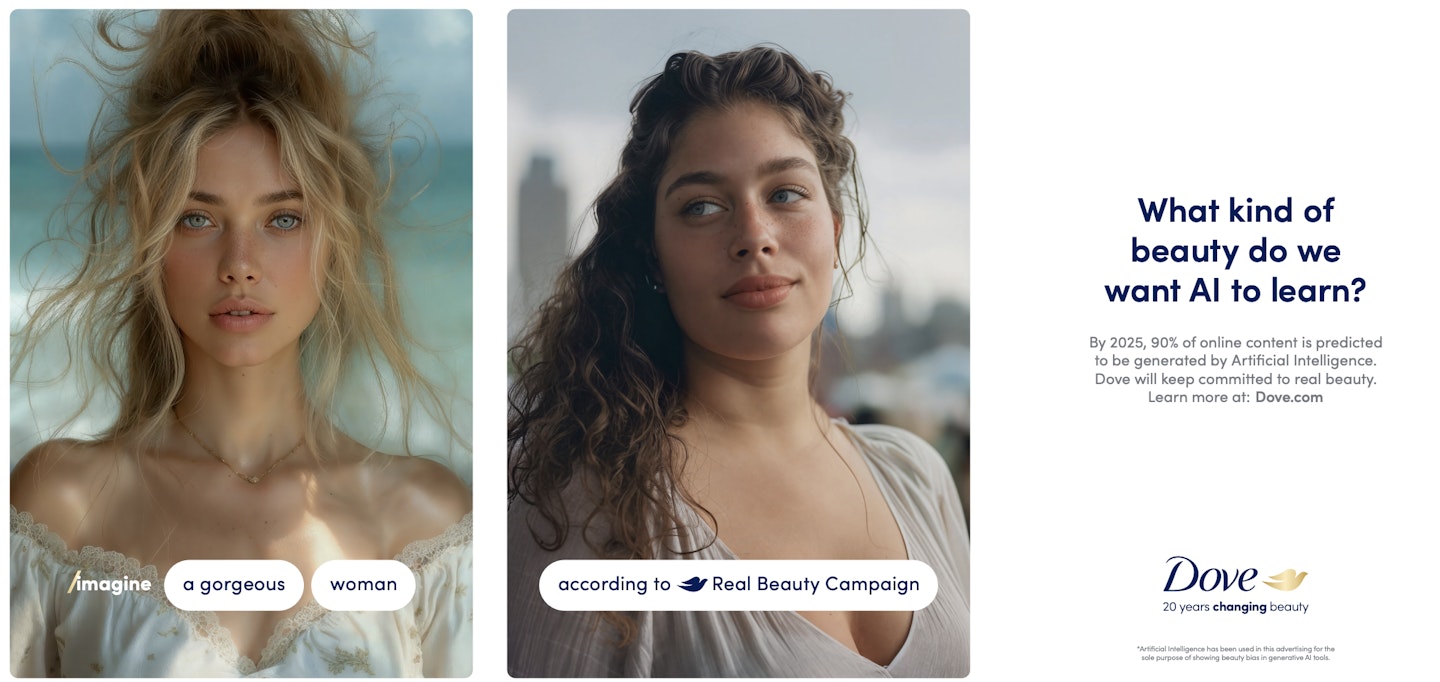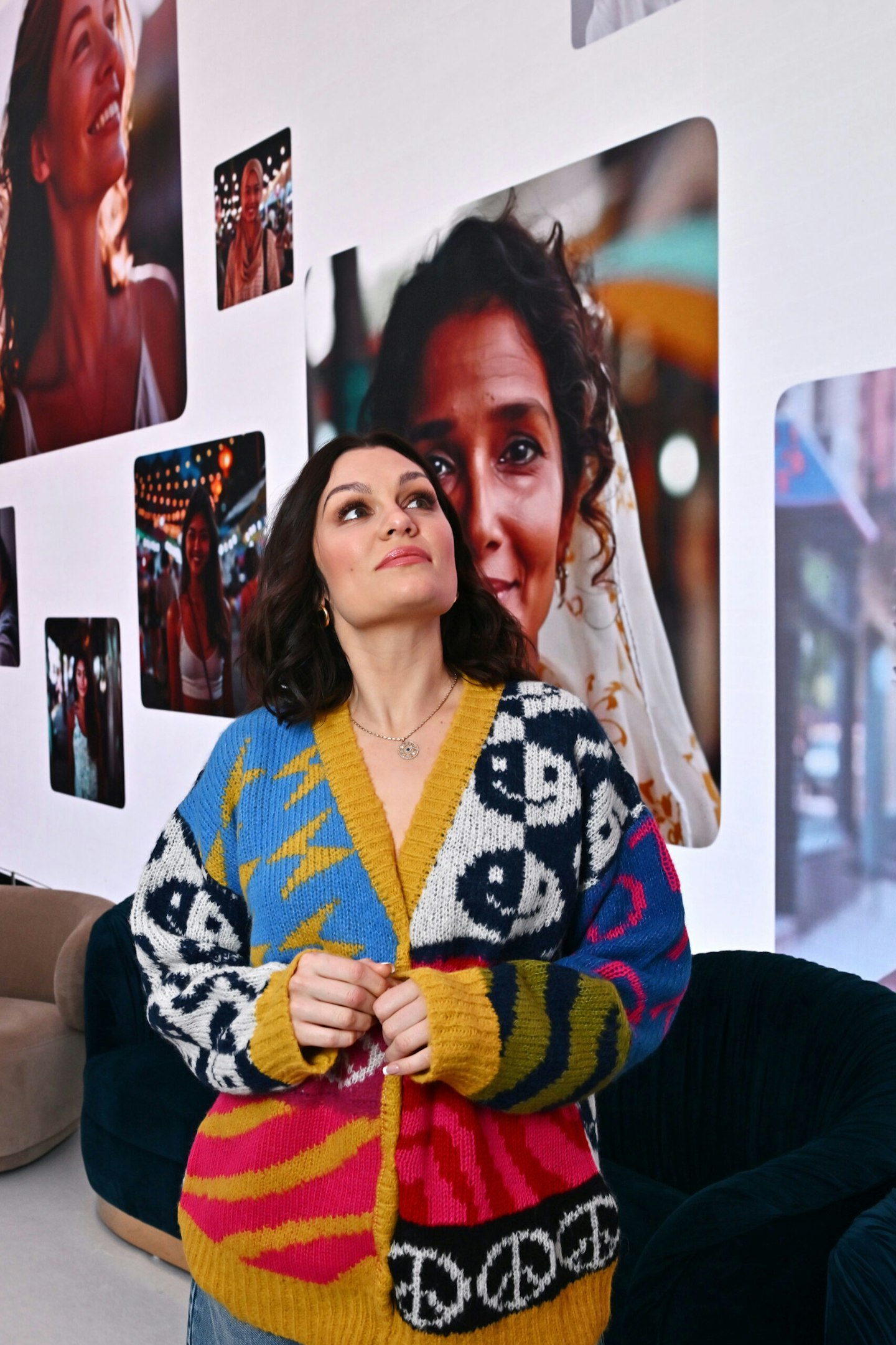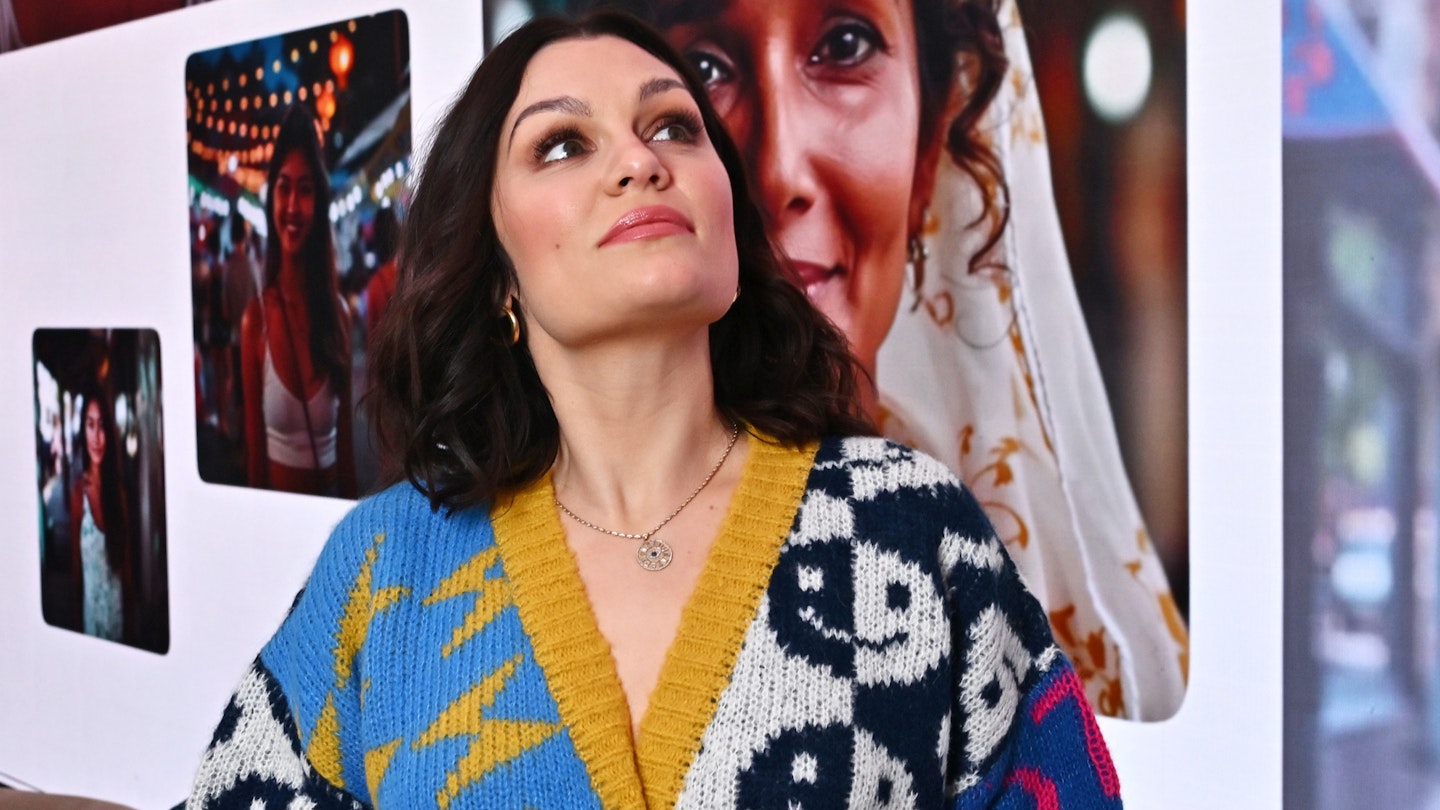It’s been 20 years since Dove’s original, boundary breaking, Real Beauty campaign launched. Anyone of magazine reading age will remember the white underwear clad ladies who starred in the campaign. For the first time women of all shapes, ages and ethnicities graced billboards, shone out of our TV’s and smiled from the pages of glossy mags. Women everywhere finally felt represented. ‘I remember so clearly seeing those images and finally feeling seen, having always felt like I was looking in on the beauty industry,’ says journalist, broadcaster and diversity advocate Ateh Jewel. It was a seismic moment not only for the beauty industry but for society.

When it comes to body positivity, the conversation has certainly moved forward since 2004. For a start, the conversation is actually taking place. Today - thankfully- there is fairer representation than ever. As well as seeing a more diverse offering of faces and bodies in advertising, many beauty brands offer more inclusive shade ranges or have pivoted away from gender norms to be accessible by all.
However, there is still a long way to go. Unrealistic beauty standards still exist and with the rise of social media we are fed beauty ‘trends’ and ‘ideals’ at an alarming rate. Plus, the rise of artificial intelligence, filter use and image altering apps mean that the bodies we see online are simply unachievable in the real world. In its 2024 The Real State of Beauty: a global report, Dove found ‘the outsized value society places on appearance has intensified the pressure to be a certain type of beautiful.’ Namely, one that doesn’t exist. Big boobs, tiny waist, sizeable bum, long toned legs, muscular shoulders, dainty wrists - full disclosure, they don’t come as a real woman package.

The study - the largest conducted by a beauty brand - includes 33,000 people across 20 countries and the findings are, well, disheartening to say the least. According to the study 2 in 3 women believe that women today are expected to be more physically attractive than their mother’s generation. Depressing. What’s even more concerning is that a staggering 1 in 2 women said that they felt pressure to alter their appearance because of what they see online, even when they know it’s fake or AI generated.
Given that 90% of online content is predicted to be AI-generated by 2025 (NEXT YEAR!) the fact that online images have such a negative impact on self-esteem is particularly worrying.

One person who is on a mission to champion real images of real women online is British singer-songwriter Jessie J.
Having been in the public eye since her teens the ‘Price Tag’ singer is no stranger to online critique. ‘You’re a man, your jaw is too big, you’re too fat, you look old, your tits are too small. I've had all the insults,’ she tells me. Instead of letting it get her down the popstar rolls her eyes and laughs it off. ‘I think it's pathetic.’
In fact, the criticism has only fuelled Jessie to be refreshingly honest about who she is. She’s had no cosmetic work done - ‘Botox once but I hated not being able to frown’ - takes to Instagram makeup free, proudly shows off her postpartum body and talks openly about the real struggles of the work/motherhood balance.
‘I’ve seen people around me cave to the pressure of online criticism,’ she says when I ask about the constant physical scrutiny that comes with being famous. For Jessie though, she thanks her parents for being able to ‘find great power, pleasure and joy in going against the grain of the pressures of society,’ Best believe that if she ever decides to get work done it will be because she wants it, not because a keyboard warrior says she’d look better with a different chin.

What does real beauty mean to Jessie? ‘Joy.’ She paraphrases Maya Angelou: ‘If someone dies you don’t talk about their nose or the colour of their hair, you talk about how they made you feel and who they were. That’s the beauty you talk about for life.’
For all her talk of ‘realness’ it’s not the things that people do to their appearance in their day to day lives that bothers Jessie it’s the AI generated images that are giving people false beauty barometers. ‘Real beauty doesn’t mean not having fake boobs or not having Botox, it just means looking the way you choose and that represents who you are.’ Rather than subscribing to the ideals of an AI generated image? ‘Exactly, we become what we see and if what we see isn't what we are then that’s what we’ll become,’ says Jessie J, the philosopher.
Not all her musings are quite so esoteric. At one point during our chat Jessie compares AI to a cake. ‘If it’s there we’ll eat it, even if we know it's not good for us.’ From which I deduce that because AI generated images and filters exist we use them. Even someone as confident as Jessie isn’t immune to the skin blurring allure of the Paris filter. ‘I sometimes find myself subconsciously swiping to it, and I have to stop myself.’
The partnership with Dove on the new Real Women campaign is a full circle moment for Jessie. ‘My first big song was ‘Who You Are’’, she remembers, at which point she bursts into a rendition of the song she wrote when she was 17. Self-love and being true to yourself are common themes throughout Jessie’s work. The smash hit ‘Price Tag’ was penned at a point in her life when Jessie was feeling like a statistic and just wanted to be seen for who she really was. While the album R.O.S.E, released in her late twenties is an ode to self-love. Cue another singing interlude from Jessie, ‘I love my body, I love my skin, I’m a goddess, I’m a queen.’
At 36 Jessie J has more love for her body than ever. Much of this is linked to becoming a mother to son Sky ten months ago. ‘Seeing what your body does while having a baby is wild,’ she says, ‘when you have a baby you honour your body in a different way.’
Jessie J is in her be real era. And she wants the rest of the world to come along for the ride. ‘I think the main thing we can do is to put pressure on brands, magazines and places where we consume content to use images of real women.’
In response to its The Real State of Beauty Report Dove has promised to never use AI to represent real people in its advertising campaigns – a first for a beauty brand. Plus, Dove have created the Real Beauty Prompt Guidelines, to help set new digital standards of representation. According to Dove, ‘these are easy-to-use guidance for everyone on how to create images that are representative of Real Beauty on the most popular generative AI programs.
Verity Clark is the Acting Health & Beauty Director at Grazia. Previously contributing beauty editor at the Sunday Times Style Verity has almost a decade of experience writing about the beauty industry.
